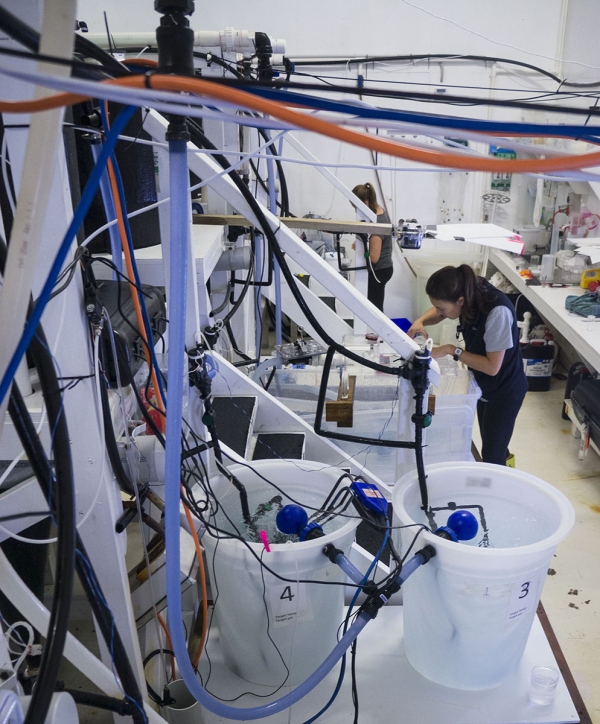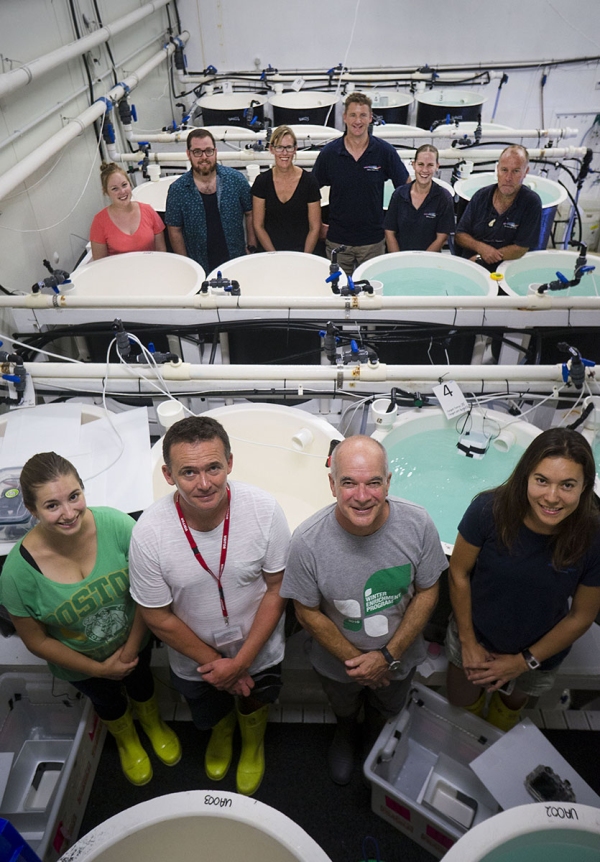The effects of climate change on fish are being studied in a world-first trial at NIWA’s Bream Bay marine science centre.
World-renowned ocean acidification researcher Phil Munday and members of his laboratory from James Cook University in Queensland are working with NIWA staff to look at the impact of increased CO2 levels on kingfish, using NIWA’s aquaculture facilities in Ruakaka.
“We already know raising temperatures and changes in CO2 can have quite substantial effects on some fish, such as affecting growth, metabolism and behaviour. But most of the work to date has been done on Northern Hemisphere species such as cod, or coral reef fish,” says Professor Munday.
“Very little is known about the effect on larger pelagic species, which could be highly susceptible, but are actually very difficult to work with. They’re very hard to culture—not many places in the world are able to culture them, but the NIWA team have the expertise,” he says.
“We are working with yellowtail kingfish larvae in big tanks, replicating the warmer and more acidified conditions expected at the end of the century, so we can see how rising temperatures and increased CO2 affects them.
“Kingfish are important not just to commercial and recreational fishers in New Zealand and Australia, people throughout the Pacific rely on these fish for their daily sustenance.”
Professor Munday says there appears to be enough genetic diversity in the NIWA kingfish brood stock to be able to test for heritability, ie they can look at whether some family lines are more resilient.
“It’s been great to blend our expertise and knowledge with the NIWA team’s ability to culture these fish. We couldn’t do this in Australia to this standard—the ability of NIWA to do what we need has been really impressive,” he says.
It’s the first trial of its kind at Bream Bay, and NIWA Assistant Regional Manager Michael Bruce says he’s keen to attract more of this work. “We want to raise the profile of our capability and the way we work with outside groups.”
The five week-trial is being managed by the Pacific Community (SPC) and James Cook University as part of the SPREP-led “New Zealand Pacific Partnership on Ocean Acidification”.



